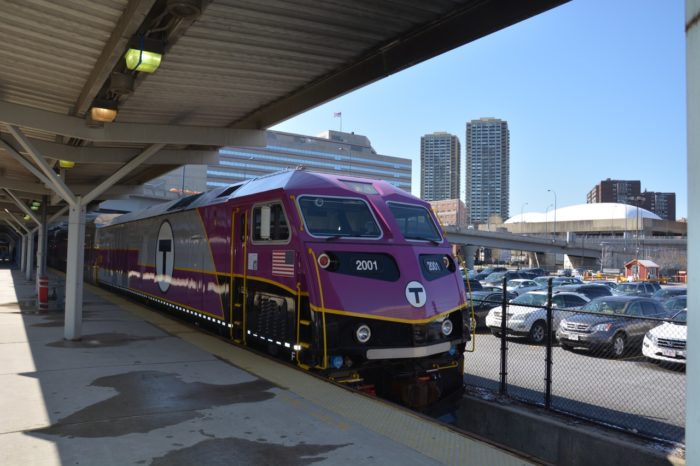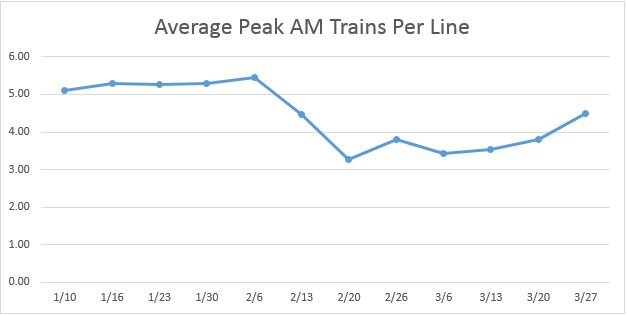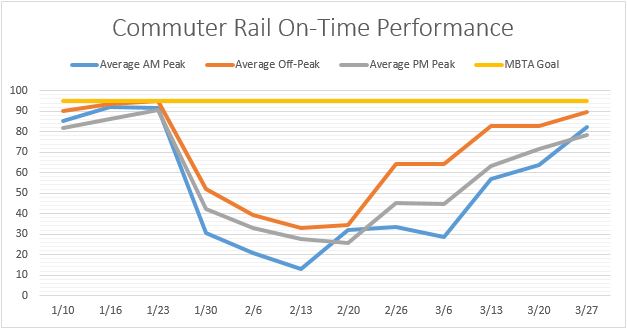Sunshine Must Return to MBTA This Spring
What began as a benign winter, accumulating only 2.9 inches before the New Year, quickly escalated into a 99.1 inch, two-month-long blizzard throughout January and February. As the snow thaws and sunshine finally returns to Boston’s streets we must take care to learn what we can about dealing with disastrous winter conditions.
What have we learned?
Chronically deferred maintenance projects result in a rail system ill-prepared for consistently inclement weather; constant expansion has left the MBTA’s resources spread thin; don’t count on reliable delay information from the MBTA to help plan your commute; and when the going gets tough, the MBTA gets going a few months later.
Recent on-time performance reports for the commuter rail for the week ending in March 27th are very promising however. Keolis seems to be on track to return to full service, with recent reports showing 4.45 trains on the average line during the morning commute instead of the 3.81 trains during the previous week (average before the storms was 5.2)
An even more encouraging sign is the rising on-time performance rate, with the peak morning trains arriving on-time 82.28 percent of the time, the best score since January 23rd. Off-peak trains were on-time 89.48 percent of the time while evening peak trains scored the worst at 78.24 percent on average.
Obviously there have been great improvements in service during the aftermath of this winter’s worst periods, but continued advances are only possible if the public continues to demand them. Unless you are a regular commuter rail user you likely don’t understand the true extent of the delays and cancellations this winter.
The MBTA’s on-time performance reports leave out any information on the subway lines, don’t elaborate on how late trains are, don’t display the number of cancelled trains, and don’t provide enough line-specific data.
First of all, the subway cannot be forgotten. There were crippling delays and sparse service for over a month and the severity is not publicly documented anywhere. We must demand the data
Secondly, a train that is ten minutes late is much less detrimental to a commute than a planned train that is cancelled. Train cancellation data is clearly an important metric when trying to grapple with the size of the MBTA’s problems this winter.
Lastly, performance data for the rail lines are broken up into morning peak, off-peak, and afternoon peak hours, making an overall review difficult.
Adding these items is not a ridiculous request; all of these features were part of the old on-time performance reports before the New Year. If the MBTA doesn’t disclose to the public the details of its poor winter performance than the public cannot demand the reforms that are necessary to make sure this never happens again.
The beginning of 2015 was cloudy and snowy. As the sunshine returns to our city, let it also return to the MBTA.
Scott Haller is a student at Northeastern University working at Pioneer Institute through the Co-op Program.





